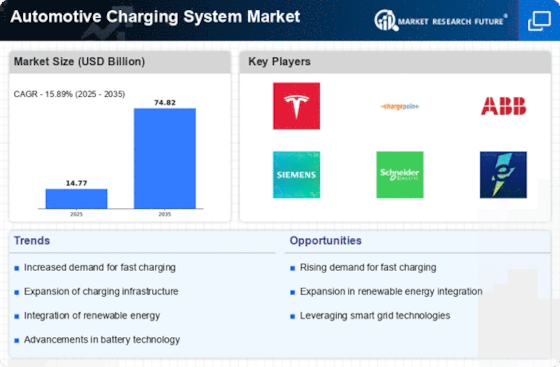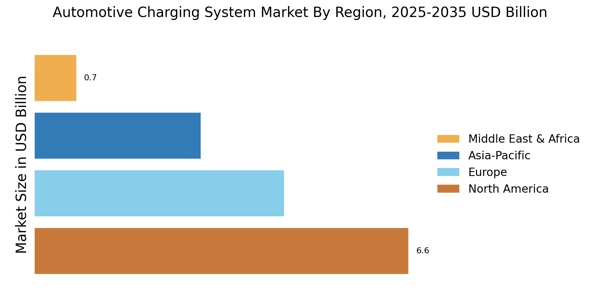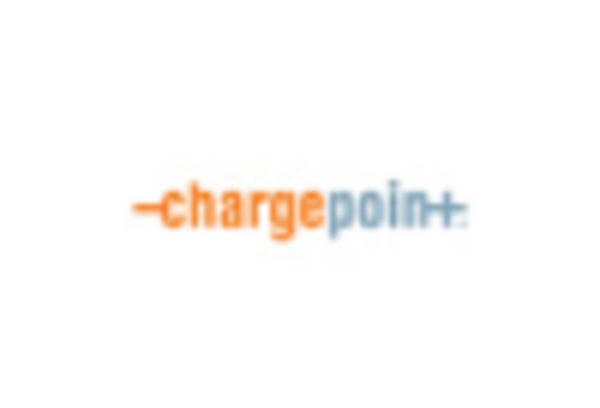Expansion of Charging Networks
The expansion of charging networks is a vital driver for the Automotive Charging System Market. As electric vehicle ownership rises, the need for a comprehensive and accessible charging infrastructure becomes paramount. Companies are investing heavily in the development of extensive charging networks, including fast-charging stations along highways and urban areas. By 2025, it is expected that the number of public charging stations will increase significantly, addressing range anxiety among potential electric vehicle buyers. This expansion not only facilitates the growth of the electric vehicle market but also strengthens the Automotive Charging System Market as a whole.
Growing Environmental Awareness
Growing environmental awareness among consumers is significantly influencing the Automotive Charging System Market. As individuals become more conscious of their carbon footprints, the shift towards electric vehicles is accelerating. This trend is further supported by educational campaigns and advocacy for sustainable transportation solutions. In 2025, it is anticipated that a substantial portion of the population will prioritize eco-friendly options, leading to increased demand for electric vehicles and, consequently, charging infrastructure. This heightened awareness is prompting manufacturers to invest in cleaner technologies and expand their offerings within the Automotive Charging System Market.
Government Incentives and Regulations
Government incentives and regulations play a crucial role in shaping the Automotive Charging System Market. Various countries have implemented policies to promote electric vehicle usage, including tax credits, rebates, and grants for charging infrastructure development. For instance, funding initiatives have been allocated to support the installation of charging stations in urban and rural areas. These measures are expected to drive the market forward, as they lower the financial barriers for consumers and businesses alike. By 2025, it is projected that such incentives will significantly increase the number of charging stations, thereby fostering a more robust Automotive Charging System Market.
Increase in Electric Vehicle Adoption
The surge in electric vehicle adoption is a primary driver for the Automotive Charging System Market. As consumers increasingly opt for electric vehicles, the demand for efficient and accessible charging solutions rises correspondingly. In 2025, it is estimated that electric vehicles will account for over 30% of total vehicle sales, necessitating a robust charging infrastructure. This shift not only reflects changing consumer preferences but also aligns with governmental policies aimed at reducing carbon emissions. Consequently, manufacturers are compelled to innovate and expand their charging systems to accommodate this growing market, thereby enhancing the overall Automotive Charging System Market.
Technological Advancements in Charging Solutions
Technological advancements are transforming the Automotive Charging System Market. Innovations such as wireless charging, smart charging systems, and ultra-fast charging technologies are enhancing the efficiency and convenience of electric vehicle charging. For example, the development of ultra-fast chargers capable of delivering 350 kW can reduce charging times to mere minutes, making electric vehicles more appealing to consumers. Furthermore, the integration of smart technology allows for real-time monitoring and management of charging stations, optimizing energy use and reducing costs. These advancements are likely to attract more users to electric vehicles, thereby propelling the Automotive Charging System Market.

















